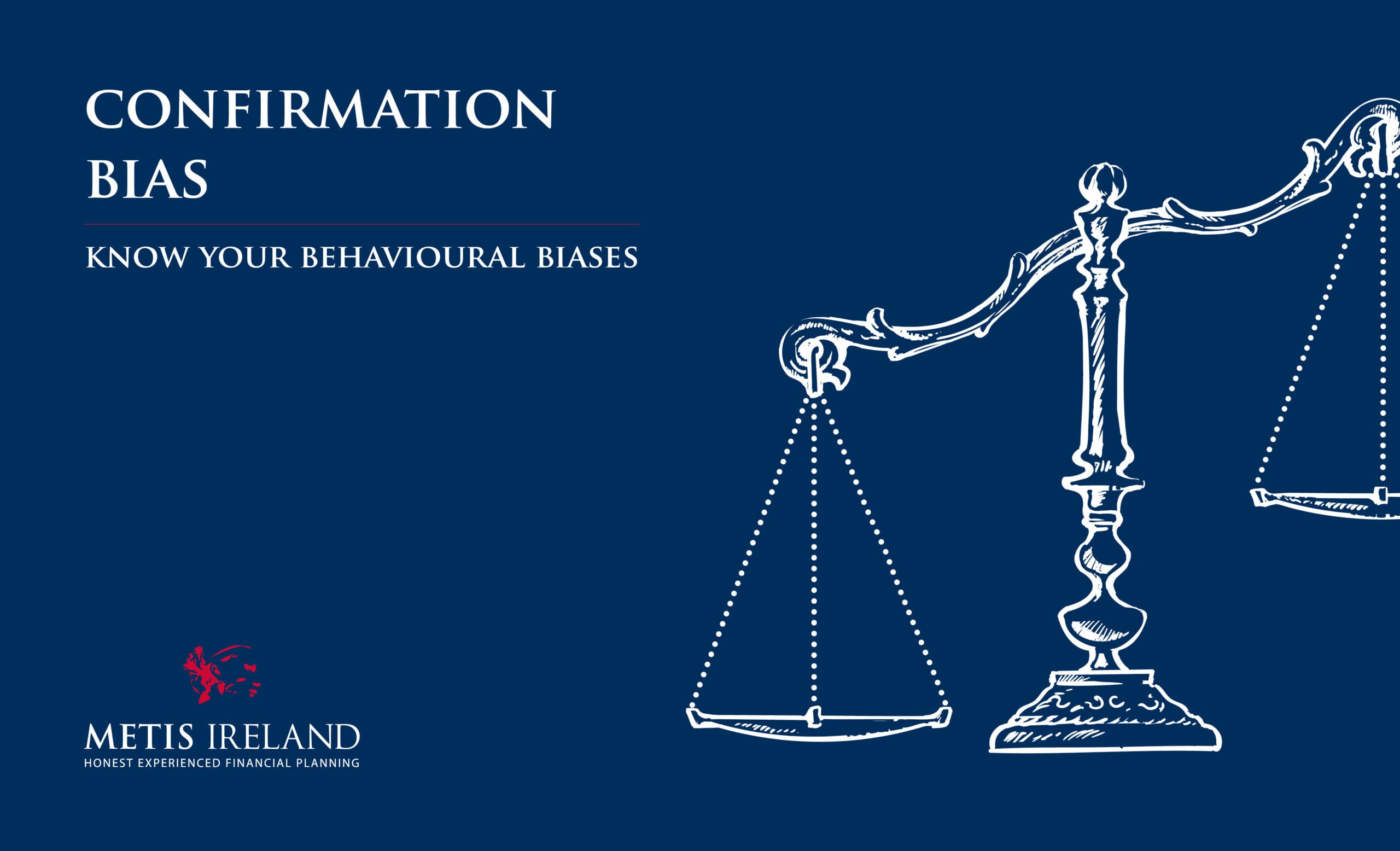In an ideal world, we’d all make sensible, carefully calculated decisions about our money. We’d leave aside our emotions and decide our next steps based on facts, iterative learning and the evidence placed before us.
Unfortunately we’re just not that sensible. As investors, and as humans, it isn’t that we go out of our way to make questionable decisions, but we do carry with us a range of personality quirks that can knock our decisions off balance. Those quirks are behavioural biases – a group of filters that help us to learn, function and progress through life. They’re often very helpful, but they can also exaggerate or blunt our reactions, particularly when it comes to decisions about money.
In this ongoing series, we’re placing the 17 behavioural biases under the microscope one at a time. We’ll show you what each bias does and why it can lead to poor decisions. This week, it’s confirmation bias.
Behavioural Bias #3 – Confirmation
What is it?
We humans love to be right and hate to be wrong. Anyone who’s resisted the temptation to say ‘I told you so’, possibly to bursting point, will know this to be true. Everyone likes to be a winner. The problem is that this desire to be right can very easily blur the lines between what we know to be true and what we’d like to be true. Once emotion comes into it, things get even harder.
Confirmation bias tricks us into being extra sympathetic to information that supports our beliefs and especially suspicious of – or even entirely blind to – conflicting evidence. A really good example would be supporting a football team. If you’re passionate about your team and they’re going through a rough patch, it’s easy to weight good information more heavily than the bad. A draw will go a surprisingly long way to offsetting three defeats in a row, leading to predictions of an upswing, because we want them to be successful.
What’s happening is the direct influence of our desires on our beliefs and it gets dangerous when wanting something to be true crosses the line into believing it to be true – that’s when critical thinking becomes wishful thinking.
It’s not just that we embrace information that confirms what we believe and then cherry pick the bits we like, it’s that we also ignore or reject information that casts doubt on it. It’s the opposite of ‘fluid intelligence’ – the ability to absorb new information and adapt one’s beliefs to incorporate it.
When is it helpful?
Confirmation bias is, in a sense, a form of iterative learning. When it’s working in our favour, confirmation bias helps us build on past insights to more readily resolve new, similar challenges. Imagine if you otherwise had to approach each new piece of information with no opinion, mulling over every new idea from scratch. While you’d be a most open-minded person, you’d also be very indecisive and make slow progress.
When is it harmful?
In investing, once we believe something – such as that an investment is a good or bad idea, or a market is about to tank or soar – we want to keep believing it. To remain convinced, we’ll tune out news that contradicts our beliefs and we’ll focus on that which favours them.
We discount facts that would change our mind, find false affirmation in random coincidences, and justify fallacies and mistaken assumptions that we’d otherwise recognise as inappropriate. We do all this without even knowing it’s happening. Even stock analysts may be influenced by this bias.
As ever, the best defence is to be aware of the behavioural biases at work in your thought processes. But a professional, objective opinion of your next moves from an experienced advisor is also key in arriving at the right decisions for your needs.
Read Part 3: Familiarity Bias →
Keep bias at bay
It’s surprising how hard it can be to simply let things be. Knowing why we react in the ways we do is the first step to avoiding the counterintuitive actions that can damage what we set out to achieve with our investments.
You can download Making Better Decisions: Know Your Behavioural Biases in full today.
Carl Widger
Co-Founder & Director
Email: cwidger@metisireland.ie
Disclaimer
Metis Ireland Financial Planning Ltd t/a Metis Ireland is regulated by the Central Bank of Ireland.
All content provided in these blog posts is intended for information purposes only and should not be interpreted as financial advice. You should always engage the services of a fully qualified financial adviser before entering any financial contract. Metis Ireland Financial Planning Ltd t/a Metis Ireland will not be held responsible for any actions taken as a result of reading these blog posts.





